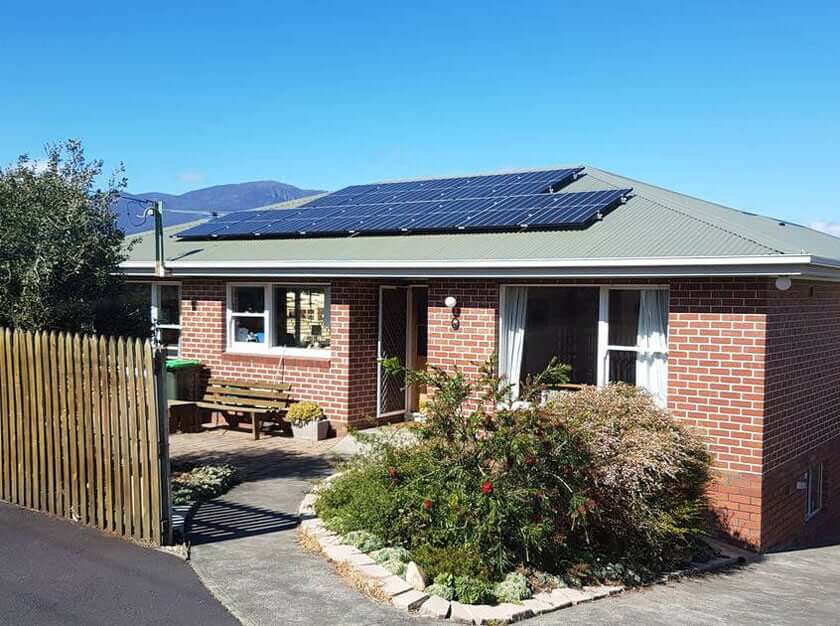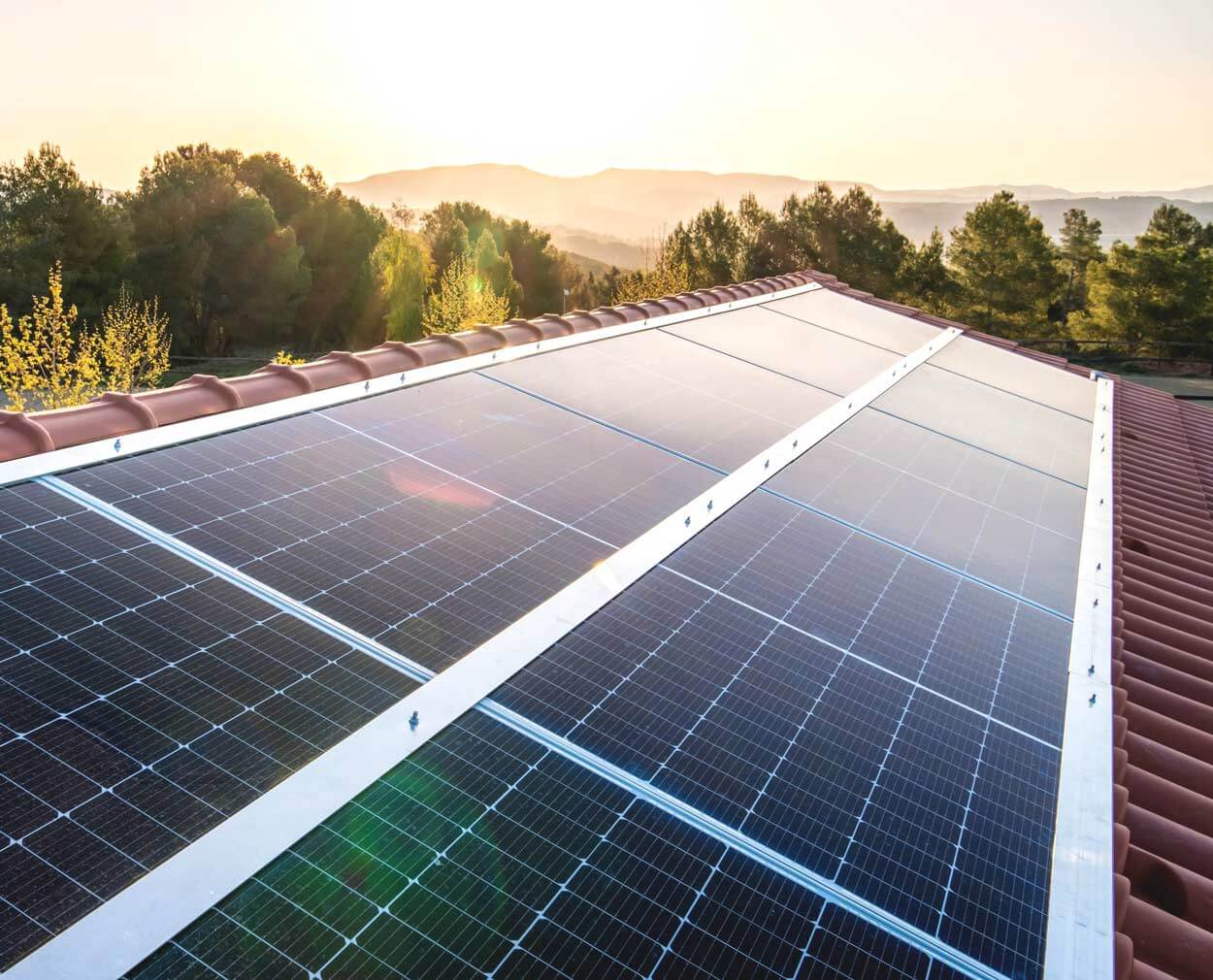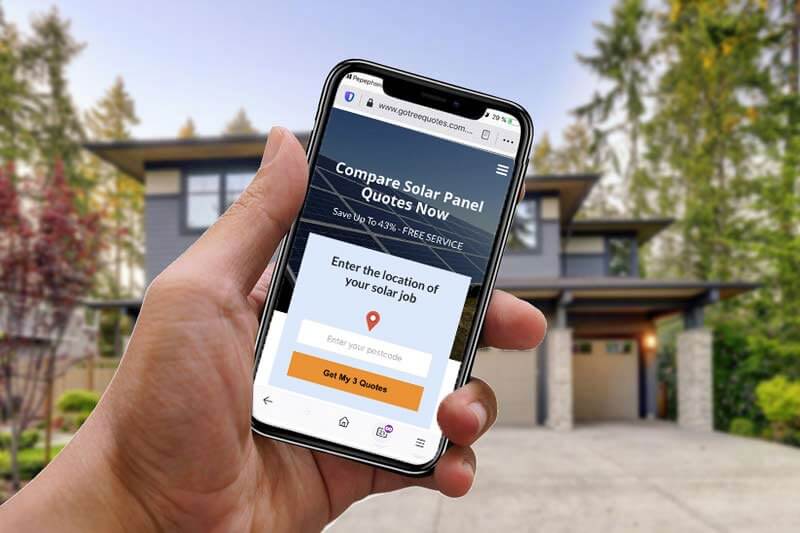Home Charging Tenants for Solar Power
Charging Tenants for Solar Power
As electricity costs go through the roof, solar power is becoming a much more appealing and cost-effective choice for both homeowners and property investors alike. Yet, this raises an important query – is it legally permissible for landlords to charge their tenants for utilising solar energy?
Yes. Landlords can charge tenants1 for solar power, but the terms must be laid out in the property lease agreement. However, the landlord cannot charge more than the electricity retailer would charge. Additionally, the landlord and tenant must agree on how much the cost of solar power will be.
Charging tenants2 for solar power encourages landlords3 to install solar panels in their investment property.

Table of Contents
ToggleBenefits of charging tenants for solar power
Save on the electricity bill
The use of solar power reduces the use of grid electricity. With the high and rising electricity costs, other power sources can be utilized to reduce the cost.
The cost of solar is much lower than the cost of electricity.4 Therefore, tenants will have lower electricity bills when they use solar.
How much is paid is determined by both the landlord and tenant5. Proper solar power usage monitoring must be done to arrive at the correct amount to charge.
Tenants stay longer in the property
As a landlord, one of the key factors influencing your long-term profitability is the ability to retain tenants. High tenant turnover not only disrupts your cash flow but also increases costs associated with marketing, repairs, and renovations for vacant units. Fortunately, there’s a powerful solution that can help you keep tenants satisfied and on your property for extended periods.
When tenants are satisfied with their living situation and experience lower monthly expenses, they are more likely to remain in their rental units for extended periods. This stability in tenancy translates into a steady stream of income for you as a landlord, minimizing the disruptions and costs associated with frequent tenant turnover.
Reduced tenant turnover means fewer vacancies, less time and money spent on marketing and preparing units for new tenants, and a more consistent cash flow to reinvest in property maintenance and improvements. Additionally, retaining long-term tenants can foster a sense of community within your property, creating a positive and desirable living environment that attracts and retains quality tenants.
Increase in landlord earnings
There are different ways in which tenants benefit from solar. Most times, the electricity account is in the landlord’s name. The bill comes to the landlord with an offset from the solar energy that they may be exporting to the grid. Therefore, the amount on the bill is quite low.
When the power bill is much lower than the cost of solar power, the landlord makes a profit6 which increases his rental income.
Additionally, landlords can raise rents on properties installed with solar panels.
Eco-friendly
Installing solar panels on rental property reduces the carbon footprint7 of the property and those that live in it.
Solar power reduces reliance on fossil-fuel-produced electricity. Therefore, the property is environmentally friendly.
Can tenants receive solar benefits
Besides lower electricity costs, property owners enjoy rebates and a feed-in tariff8 to benefit from solar panel installation.
As a tenant, you cannot enjoy the additional benefits that come with solar panels. You can only reduce your electricity bill from the use of the panels.
The rebate enables the owner of the property to purchase solar panels at lower costs9.
Further, the feed-in tariff goes to lower the cost of electricity bills. Tenants can benefit from it with an agreement from the landlord.

Landlord and tenant agreement scenarios for solar power use
Besides the landlord charging their tenants for solar, there are other options for the use of solar power they can agree on.
These other options are necessary to ensure that either or both parties can get the maximum benefit from the installation of solar panels.
They include:
- The landlord allows the tenant to enjoy a government solar bonus. In this case, the electricity account is registered in the tenant’s name. Therefore, the tenant can enjoy the solar bonus. The landlord does not enjoy any benefit from the solar panels10. However, the tenant is likely to stay longer in the property.
- The landlord maintains the account, pays the bill, and gets the solar bonus. The tenant will then reimburse the landlord the full amount of the bill. The landlord can make a profit by charging the full bill even when they enjoy a rebate.
- The landlord maintains the account and pays the bill. They will then ask the tenant to reimburse the amount of the bill less the rebate. Therefore, the tenant can enjoy lower electricity bills.
- The landlord can charge their tenant for electricity11 as part of the rent.
Factors to consider when charging tenants for solar power
Record solar power usage
To charge your tenants fairly, you must record how much electricity they have used. Modern solar panels have components that allow you to record how much electricity is produced and consumed.
Therefore, a landlord must record and monitor the usage. The recorded usage is multiplied by the rate charged per kWh.12
Ensure that the recording device works correctly. It should also be easily accessible and easy to use.
Transparency
The landlord and the tenant must be clear on how much to charge for solar power. Solar power should not be charged at the same rate as grid electricity.
Your tenant must know13 the rate charged for solar and grid electricity.
Billing agreement
How often will you charge your tenant for the use of solar power? You could charge weekly, monthly, or quarterly.
Make sure that you agree with your tenant on a convenient billing period. It ensures that they will pay the solar electricity bill on time.
Can a tenant install solar panels
The Tenant’s Dilemma
It is uncommon for tenants to invest in solar panel installations on a property they do not own. Solar panels are capital-intensive investments that require significant upfront costs. Furthermore, once installed, they become fixtures that are expensive and difficult to remove and relocate.
For tenants who desire the benefits of solar power, the most practical approach is to request their landlord to consider installing solar panels on the rental property.
Landlords’ Considerations
When approached by tenants regarding solar panel installations, landlords must carefully evaluate the potential implications. One of the key considerations is the ownership and enjoyment of the benefits accrued from the solar panels.
Most government solar schemes and incentives require proof of ownership to qualify for rebates, tax credits, or interest-free solar loans. As such, landlords must determine whether they are willing to grant their tenants the necessary authority to access these benefits.
A Letter of Authority
In situations where landlords agree to allow tenants to install solar panels, it is crucial to establish clear agreements regarding ownership and benefit sharing. Tenants typically require a letter of authority from their landlord to qualify for government solar incentives and programs.
This letter should outline the terms and conditions, including the ownership of the solar panels, the duration of the tenant’s right to use the system, and any arrangements for compensation or benefit sharing upon the tenant’s departure.
Navigating Potential Challenges
While solar panel installations on rental properties can be advantageous for both parties, they also present potential challenges. Landlords may have concerns about the impact on the property’s value, the integrity of the installation, and the implications of future tenant turnover.
Tenants, on the other hand, may face uncertainties regarding their long-term tenancy and the ability to recoup their investment if they need to relocate before the solar panels have paid for themselves.
Clear communication, well-defined agreements, and a thorough understanding of the legal and financial implications are essential for successfully navigating the complexities of solar panel installations on rental properties.
As the demand for sustainable living solutions grows, landlords and tenants must work together to find mutually beneficial arrangements that promote the adoption of renewable energy while protecting the interests of all parties involved.
Depending on the landlord, tenants can get solar when:
- The landlord installs a system
- Use community solar or
- Install a portable solar system
Solar panel assistance for landlords who want to install solar panels in rental property
Assistance for landlords to install solar panels depends on where your property is located.
Currently, Victoria has a landlord assistance program. To be eligible, you must:
- Own a rental property that is currently occupied by a tenant.
- The annual household income for the tenant should be less than $180,000.
- The value of the property is less than $3 million.
- It does not have existing solar panels
- The property has not received a solar rebate before.
In other regions, landlords can access interest-free or low-interest loans to purchase and install solar panels in rental properties.
Benefits of solar power
Energy independence
Energy independence refers to the self-production of free energy.
With solar power, you can cut your reliance on expensive electricity retailers.
Live anywhere
Once you have installed solar power you can go off-grid. Therefore, you can live anywhere in Australia.
You can build a home away from the grid and solar panels will provide free electricity.
Save money
Depending on your electricity usage, you save money as soon as you install solar. It reduces your electricity bill and depending on your location, you may never have to pay for power again.
Durability
Solar panels last for about 25 years. It makes them a sustainable source of power over the long term.
You can recoup your investment in 7-1014 years depending on your usage. Then, you can enjoy free electricity for the rest of the life of the solar system.
Little maintenance required
The most maintenance required for solar panels is cleaning. Wash the accumulated dust on the solar panels annually.
It improves their sunlight absorption and enhances their productive efficiency.15
How to save money when buying solar panels for a rental property
Consider the size of the property
The larger the property, the larger the solar system you should install.
Large properties often have higher electricity needs. Only a large solar system can provide sufficient power to run it.
Small properties have low electricity consumption. A small solar system will be suitable for it.
Therefore, the larger the property, the larger the solar system you need and the more you pay. You will pay less to install a smaller solar system on a small property.
Buy an upgradeable system
When installing a solar system, consider the future. Depending on the size of the property, there may be an increase in power consumption.
Therefore, when purchasing a solar system discuss with your installer future needs and how you can get an easily upgradeable system.
Take advantage of government incentives
The government is hoping that all households will have transferred to solar use by 205016. It has come up with programs to lower the cost of solar acquisition and installation.
Landlords installing solar panels on rental properties can use these programs to lower the investment cost.
Ensure you purchase your solar panels from a Clean Energy Council-accredited installer.
You will get a rebate that reduces your purchase and installation price by about $3,00017 depending on the size of your solar system.
The larger the solar system, the more the rebate.
You can also get low-interest loans to purchase and install solar panels in your home.
Compare price among different installers
Before you purchase solar panels, compare the cost of different solar panel installers. Also, compare the cost of different solar panel brands.
Hire a pro to install your solar system
Gosolarquotes.com. is a free tool that connects homeowners to accredited solar installers.
- At the top of the page, enter your zip code.
- Then, fill out the subsequent form and provide more information about your project. Your information is then sent to accredited installers near you.
- You will then receive three quotes and advice from three accredited installers. You can pick either of the three to handle the task of installing your off-grid battery storage.

- PLICO TEAM, (2023), CAN TENANTS INSTALL SOLAR? Accessed on: 31st March 2024, https://www.plicoenergy.com.au/blog/tenants-install-solar/
- Daniel Mercer, (2023), Calls for landlords to face mandatory solar installation for tenants as energy divide widens, Accessed on: 31st March 2024, https://www.abc.net.au/news/2023-06-08/australian-landlords-face-mandatory-solar-installation-calls/102449862
- QueensLand Governement,Department of Energy and Climate, (2023), Solar for rentals trial, Accessed on: 31st March 2024, https://www.energyandclimate.qld.gov.au/about/initiatives/solar-rentals-trial
- Ronald Brakels, (2020), Why Your Solar Feed-In Tariff Is Lower Than Your Electricity Usage Tariff, Accessed on: 31st March 2024, https://www.solarquotes.com.au/blog/solar-electricity-bill-breakdown/
- Soho, (2023), Who Pays Council Rates Landlord or Tenant? Accessed on: 31st March 2024, https://soho.com.au/articles/who-pays-council-rates-landlord-or-tenant
- Kaycee Miller,( 2023), Should I Consider Solar At My Rental Property? Accessed on: 31st March 2024, https://www.rentecdirect.com/blog/should-i-consider-solar-at-my-rental-property/
- ISOLUX, (2022), Solar Panels on Rental Property: Is It Really Worth It? Accessed on: 31st March 2024, https://isolux.com.au/solar-panels-on-rental-property-is-it-really-worth-it/
- Spencer Fields, (2023), Feed-in tariffs: What you need to know, Accessed on: 31st March 2024,https://www.energysage.com/solar/feed-in-tariffs-a-primer-on-feed-in-tariffs-for-solar/
- Evergreen Electrical Services, (2024), What Happens When You Buy A House With Solar Panels?, Accessed on: 31st March 2024, https://www.evergreenelectrical.com.au/blog/buy-house-with-solar-panels
- Bringing the Benefits of Solar Energy to Low-Income Consumers A Guide for States & Municipalities Bentham Paulos, PaulosAnalysis, (2017), Accessed on: 31st March 2024, https://www.cesa.org/wp-content/uploads/Bringing-the-Benefits-of-Solar-to-Low-Income-Consumers.pdf
- NSW government, (N.a),water electricity and gas in rental properties, Accessed on: 31st March 2024,https://www.fairtrading.nsw.gov.au/housing-and-property/renting/during-a-tenancy/Water,-electricity-and-gas-in-rental-properties#:~:text=Tenants%20will%20pay%20for%20electricity,must%20pay%20for%20these%20charges.
- EWOSA, (2023), Energy& Water Ombudsman release 2022-2023 Annual report, Accessed on: 31st March 2024, https://ewosa.com.au/consumer-resources/trouble-with-energy-or-water-bills/electricity
- The State of Queensland Residential Tenancies Authority, (N.a), Accessed on: 31st March 2024, https://www.rta.qld.gov.au/during-a-tenancy/rent-and-other-bills/solar-power
- SIMPLY ENERGY, (2024), What is the cost and payback time of a home solar system?, Accessed on: 31st March 2024,https://www.simplyenergy.com.au/blog/what-is-the-cost-and-payback-time-of-a-home-solar-system-0
- NASIOL,(N.a), Maximizing Solar Efficiency: The Breakthrough Of Nano Coatings For Solar Panels, Accessed on: 31st March 2024, https://www.nasiol.com/nanoblog/maximizing-solar-efficiency-the-breakthrough-of-nano-coatings-for-solar-panels/#:~:text=Direct%20Link%20Between%20Cleanliness%20and%20Efficiency&text=A%20clean%20panel%20surface%20allows,of%20sunlight%20reaching%20the%20cells.
- Australian government, (N.a), Australia’s Long-Term Emissions Reduction Plan: A whole-of-economy Plan to achieve net zero emissions by 2050, Accessed on: 31st March 2024, https://unfccc.int/sites/default/files/resource/Australias_LTS_WEB.pdf
- Alix Langone & Jacob Marsh, (2024), Federal solar tax credit in 2024: How does it work?, Accessed on: 31st March 2024, https://www.energysage.com/solar/solar-tax-credit-explained/#:~:text=The%20federal%20solar%20tax%20credit%2C%20commonly%20referred%20to%20as%20the,directly%20reduces%20your%20tax%20bill.
Compare Solar Panel Quotes
Table of Contents
Toggle









